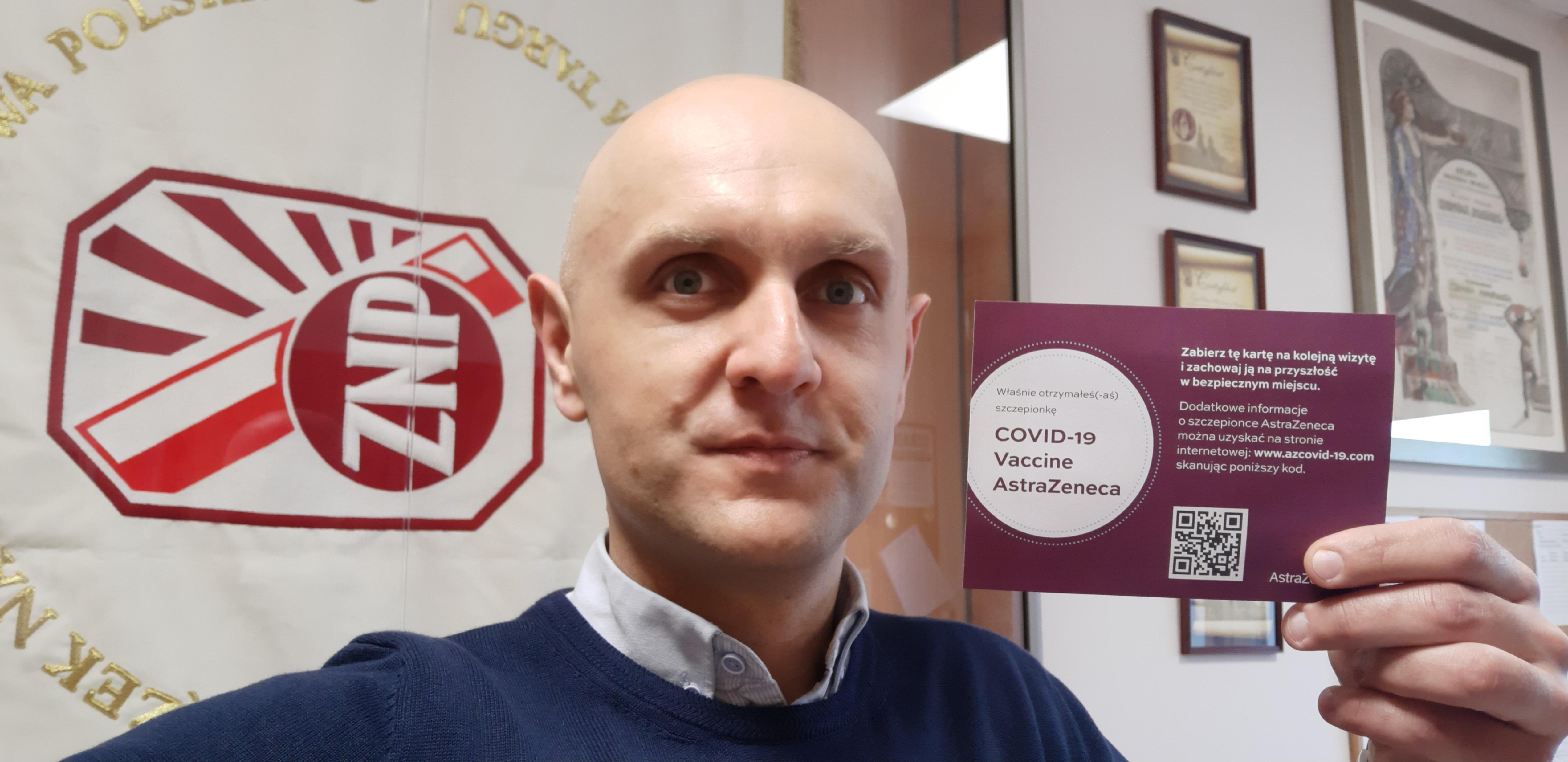ZNP successfully pushes for including teachers in the priority group for vaccination in Poland
25 March 2021
The COVID 19 outbreak is a public health crisis quite different than anything Europe has faced for many years. As education personnel and their trade unions grapple with the outbreak, we are supporting and informing member organisations in any way we can.
- Long COVID-19: What challenges for education trade unions across Europe?
- ETUCE study on Education Trade Unions in Europe facing COVID-19 Omicron Variant
- Well-being of academics and researchers in the Netherlands: who did COVID-19 affect the most?
- Belgium: Education is essential! Truly?
- Education and Training Monitor 2021 sheds light on well-being during COVID-19
- Gender segregation in education: setback to achieving gender equality in EU
- Latvia: the impact of the pandemic on teachers is extremely worrying
- Education trade unions building capacity for renewal beyond COVID-19
- French study: the psychosocial impact of COVID-19 on researchers
- Romania: Success in the negotiations for a vaccination agreement
- UK Study found stress and anxiety of academics above national average during COVID-19 pandemic
- New OECD data outlines the effect of the COVID-19 pandemic on the teaching profession
- Transmission of COVID-19 in education: the scenario for the next school year
- New NEU information tool to encourage critical-thinking on COVID-19 vaccines
- Hungarian teachers’ opinion on the reopening of schools

Following a long struggle of Polish education trade union ZNP to include teachers in the priority group for vaccination from COVID-19 virus, at the beginning of February, the Polish government announced that the vaccination of teachers in Poland should be completed by the end of March 2021. At the moment, already 545,000 teachers have applied for this procedure.
Following the ZNP the intervention of the ZNP, teachers who are currently on vacation or on sick leave due to other chronic diseases, as well as administration and service employees, could also apply for vaccinations. Unfortunately, in the case of the latter group, vaccinations were suspended, but the health ministry assures that administrative and technical staff is still in the priority group. It is extremely important because since the end of January 2021, kindergartens and special schools in Poland have been opened, also students in grades 1-3 have returned to school. In open educational institutions, learning takes place under appropriate sanitary restrictions.
Vaccination of teachers in Poland is a huge success for the ZNP and education sector which was achieved despite the lack of any social dialogue at the central level. Starting from the first school lockdown in March 2020, ZNP had put in an enormous amount of work to protect the health and safety and working conditions of teachers. ZNP sent 34 intervention letters counting only those sent to the central authorities: the prime minister, ministers of health, education, digitisation, and the national labour inspectorate. The ZNP information campaign in social media was updated every 3 hours, 200 pieces of information about Covid-19 were published in the ZNP application, and over 100 articles, including interviews with epidemiologists, doctors and psychologists, were published by ZNP weekly magazine "Teachers’ Voice". This information was illustrated by posters and graphics and accompanied by press conferences held on average once a week.
Through these activities and local outreach, ZNP has been able to conduct two free coronavirus testing campaigns for teachers of preschools and elementary schools that were about to open. The local governments that run these schools have tried to equip the educational institutions (within their budget limits) with digital equipment that can be used or borrowed for distance learning.
ZNP also managed to win a one-time allowance for teachers in the amount of EUR 120 for the purchase of equipment needed to conduct online classes, which, given the low salaries of Polish teachers, was not optimal help but should nevertheless be noted. It was also possible to stop attempts to lower the remuneration of teachers working remotely thanks to the legal opinion of the ZNP, which argued that the school bodies are not allowed to freely change the working hours of teachers to reduce their remuneration. Following the ZNP legal interventions, the Ministry of Education confirmed that teachers are entitled to remuneration for overtime hours and that teachers are entitled to a functional allowance for the period of remote work, e.g. as class teachers and a bonus for good work.
Furthermore, following the ZNP intervention, the parliament deleted from the draft of another anti-crisis regulation (the so-called ‘shield regulation’) the provision depriving teachers of part of this year's vacation. This checklist highlights many risks of wage deregulation associated with the pandemic and distance learning.
Unfortunately, this is only a small part of problems arising for the education sector from Polish government’s plan to address the COVID-19 pandemic and post-pandemic crises. ZNP witnesses clear signs that the burden is going to fall on teachers to solve post-pandemic problems, especially regarding ensuring the well-being and educational success of returning students after months of isolation, that was often challenging and associated with lack of access to remote education.